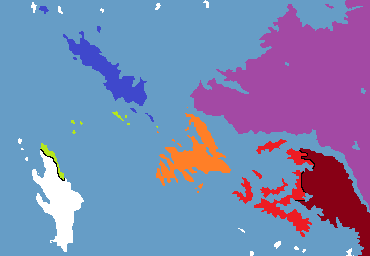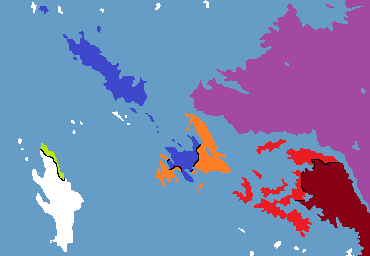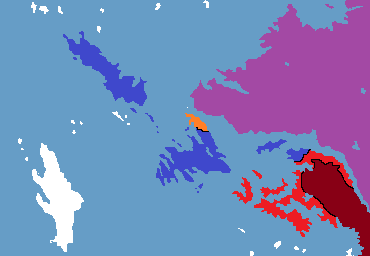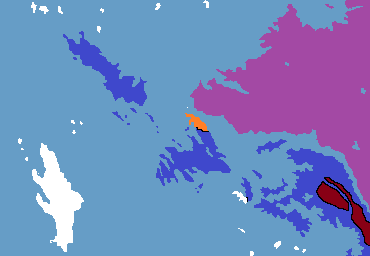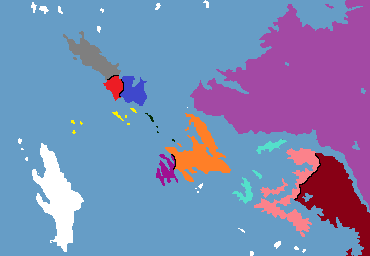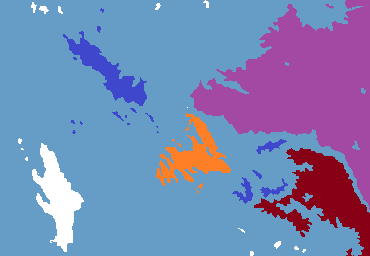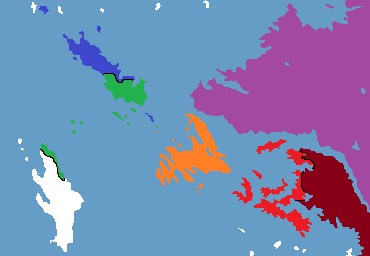
Prehistoric Mexregiona (Altaland)
About 4,000 Years Ago
Africanus pounced on the dead carcass of the massive dear. The poor victim had two arrows through the chest and another near the rear. Africanus’ companion had shot that latter hit. Africanus knew that simply from the dreary shot she made; he continued dislodging the reusable sticks from the form.
“Quod est pulchellus bonus: Quid putas?” (“That was pretty good, don’t you think?”)
“Nam Marpan a, turpis.” (“For a Marpan, definitely.”)
“Et non habent dicere quod sicut omnia, tu scis. Conabor mi et plerumque cervam ferire.” (“You don’t have to say things like that, you know. I try my best, and I hit the deer most times.”)
"Plerumque facturus est, et scitis. Rectae sint occurreres momentis. Nos enim paratos esse. (“Most times isn’t going to work, Aurora, and you know it. They are going to come across the line at any moment. We have to be ready.”)
Aurora sat in silence for a moment, twisting the curls of the Spanish moss on the surrounding bushes. “Ego enim ut caput retro,” she said. (“I think we should head back.”)
“Dicunt quod facit? Nos tamen revertere ad corpus adducere.” (“What makes you say that? We still have to bring the body back.”)
“EGO iustus habere affectum.” (“I just have a feeling.”)
“Ineptias. Nunc veniunt; colligere extremum.” (“Nonsense. Now come; pick up the other end.”)
…
The two arrived at the outpost right after sundown, settling the carcass on the grounds just outside the village. They had doused it in the stream nearby beforehand to rid of the attractive scents.
They marched into the camp, sweaty and tired like everybody else.
But not as dead.
Bodies littered the ground. Hatchets sunk into the gore of men, women, and children alike. Arrows showered the ground with pools of scarlet red. Shattered longbows had been flung down and entrenched in the abdomens of the camp’s inhabitants.
Fires were raging throughout the settlement. It seemed as if they had went straight for the temple, the largest building in the square.
Africanus had willed himself not to cry, yet Aurora was watering the ground. While the boy had been taught the ways of the Forest, the girl was alone in her soul.
They both headed toward the temple, a shabby construction for a seasonal civilization. This hut had been the center of life for all these fallen, and Africanus nearly blew up with rage. He had hated the Northern Faction with a passion before, but the temple increased it tenfold. He would get revenge, and Aurora would be there with him all the way.
He was going to destroy the invaders, if it was the last thing he did.
The boy let out a howl of sorrow, and dug his hands into the ground before the melting altar of His God.
